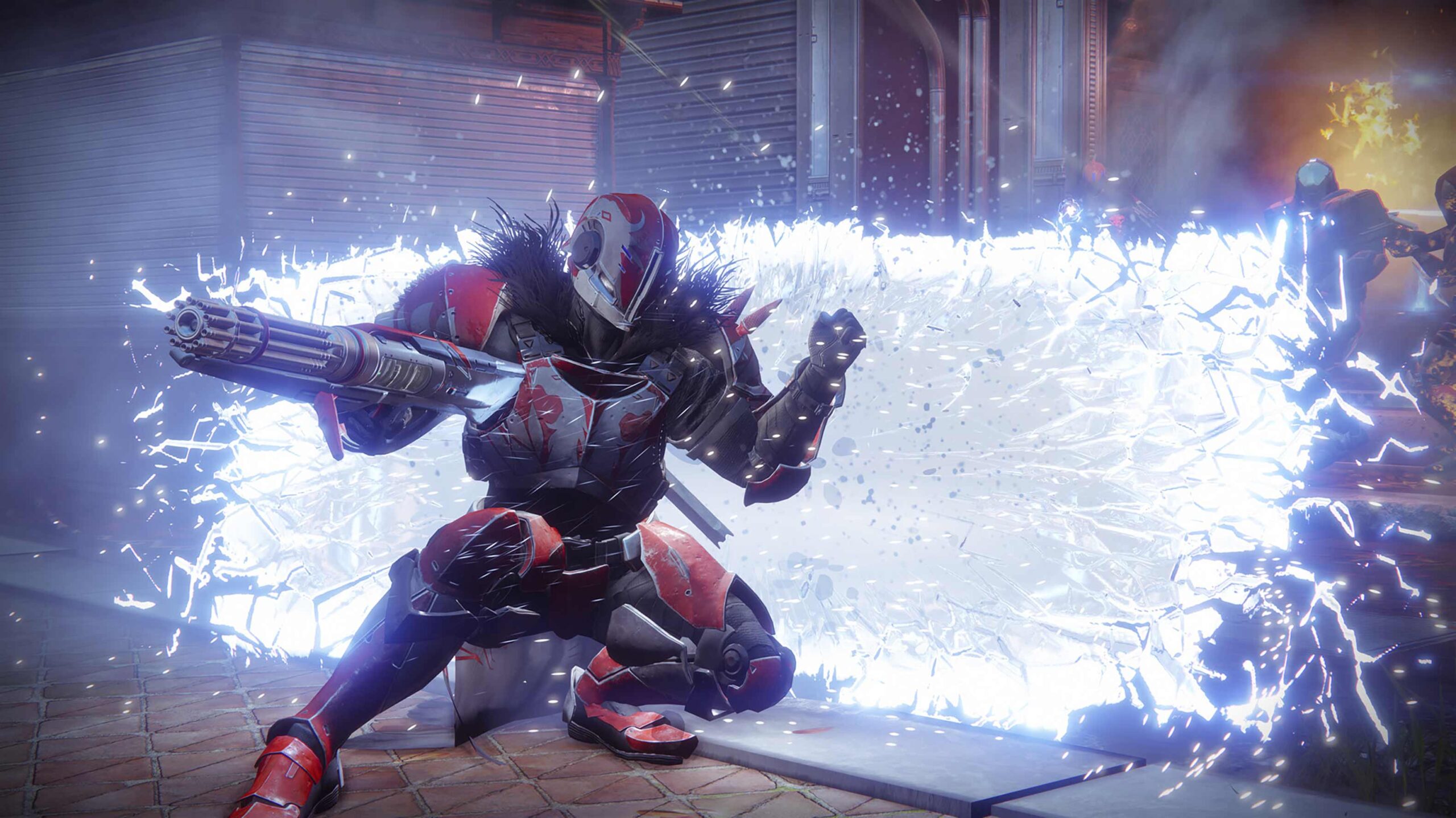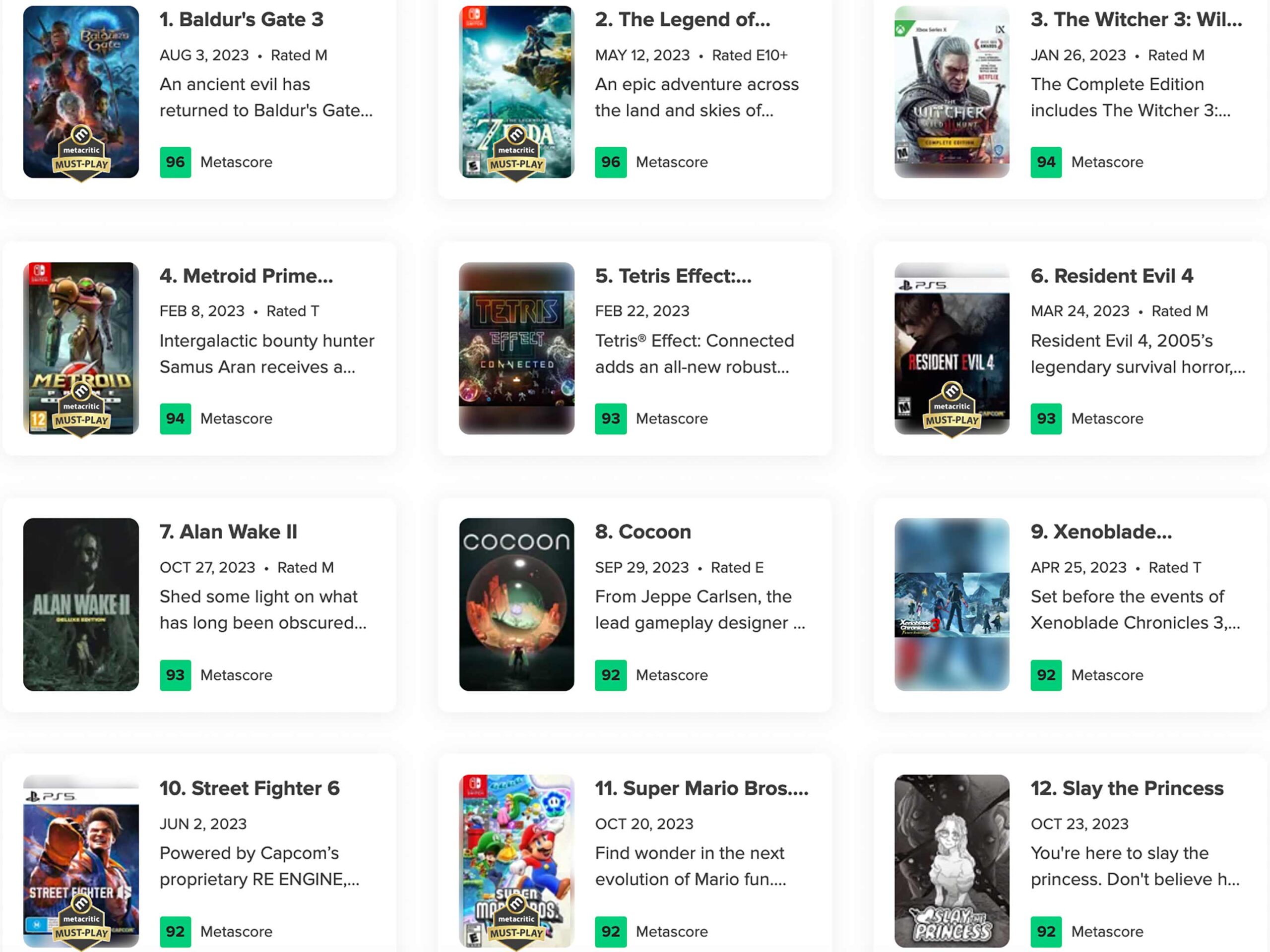
Much of the chatter surrounding video games in 2023 has been about just how stacked the year has been for quality releases.
After all, we’ve gotten new entries in juggernaut series like Zelda, Mario, Spider-Man, Street Fighter and Diablo, a new sci-fi IP from Bethesda, a top-rated new Baldur’s Gate that took everyone by storm, a beloved remake of Resident Evil 4 and indie darlings like Dave the Diver and the Canadian-made Sea of Stars and Venba. Axios noted that 2023 has the highest-rated lineup of games in the past 20 years.
That’s to say nothing of the massive commercial successes in gaming this year, like Hogwarts Legacy making almost $1 billion in just two weeks, The Legend of Zelda: Tears of the Kingdom becoming the fastest-selling Nintendo game ever in the Americas or Marvel’s Spider-Man 2 becoming the fastest-selling PlayStation Studios game. Overall, the global gaming industry is expected to generate roughly $250 billion USD (about $341 billion CAD) in revenue this year.

Some of the top-rated 2023 games on Metacritic.
Therefore, it’s understandable that a lot of people would be talking about that ad nauseam. We’re guilty of that, too. But there’s something else that a lot of people simply aren’t acknowledging — this year has been brutally unfair to the people who actually make these games. I’m far from the first to say this, which says a lot about how persistent the industry’s issues have been.
As tracked by technical artist Farhan Noor, more than 6,000 games industry jobs have been lost in 2023. This includes PlayStation’s Naughty Dog (The Last of Us) and Media Molecule (Dreams), Microsoft’s 343 Industries (Halo Infinite) and The Coalition (the Vancouver team behind Gears 5), Epic Games (Fortnite), EA’s BioWare Edmonton (Mass Effect) and even Amazon-owned Twitch. That’s to say nothing of veteran studio Volition (Saints Row) closing entirely. That these are all big, high-earning companies making such layoffs makes it particularly grim.
“All of 2023’s layoffs have renewed calls for unionization within the gaming industry.”
But the round of cuts that probably garnered the most attention — and the one that perfectly encapsulates all these problems — came just a few weeks after Noor’s data began circulating. Earlier this week, Destiny maker Bungie laid off around 100 employees. The developer attributed the decision to missing revenue targets by diminishing interest in Destiny 2, resulting in revenue coming in nearly 50 percent below targets. However, that speaks to the larger problem: it’s always the lower-level workers who take the fall when the business is suffering.
These are truly talented people. If you have openings, I would highly recommend each and every one of them.
— pete parsons (@pparsons) October 30, 2023
Bungie CEO Pete Parsons just closed a $3.6 billion USD (about $4.9 billion CAD) sale of the company to PlayStation last year, and $1.2 billion USD (about $1.6 billion) was supposed to go towards employee retention. Therefore, people felt assured with some sense of security to help turn the ship around. But ultimately, that never happened, and according to Forbes, the employee retention funds were spent a long time ago, “often on buying out employees’ Bungie shares which then went to Sony.” It begs the question of why they weren’t actually used to, I don’t know, retain employees.
Really, layoffs like this signal a failure in leadership. (It should be noted that the nature of the acquisition means that Bungie maintains autonomy under Sony, so leaders like Parsons ultimately made the call on the cuts.) Situations like this call to mind Nintendo’s Wii U era, where executives, including the late CEO Satoru Iwata, all took significant pay decreases as part of a refusal to lay off staff. But CEOs, in general, pretty much never agree to salary cuts because, undoubtedly, they’re just too greedy.
New info about the Bungie layoffs. Per a source: pic.twitter.com/sPs9dLTruI
— Paul Tassi (@PaulTassi) October 31, 2023
Back to Bungie, what makes matters worse is how the layoffs came suddenly and right before the end of the month, leaving those affected with just one more day of benefits. On top of that, Parsons added salt to the wound during internal meetings by claiming that the company had kept “the right people,” suggesting that the dozens who were laid off — including a renowned Halo composer and award-winning accessibility advocate — were disposable. It’s a bafflingly tone-deaf comment, especially considering how the now morale-starved remaining employees are still expected to continue toiling away on Destiny 2.
Of course, inept and money-hungry leaders will sadly never go away, so what else can be done? Well, all of 2023’s layoffs have renewed calls for unionization within the gaming industry. Because while job cuts have been happening in many industries, game developers don’t even have the basic guarantees that unions would provide them. We’ve seen some individual teams successfully unionize, like the QA workers at Activision-owned Raven (Call of Duty) or BioWare Edmonton, in a push for improved pay, benefits and job stability. But those instances are uncommon, and there isn’t an overarching game union otherwise.
Over 6,000 people have been laid off in games this year Geoff.
This year has been anything but incredible for games.
— Nel, The Internet's Dad (@Nelstar15) October 30, 2023
For now, let’s hope that more awareness is brought to these issues. If nothing else, we’re starting to see that happen, however slowly. When The Game Awards creator Geoff Keighley tweeted posted last week about how great 2023 has been for games, many responded to it to mention all of the layoffs. Some even called for him to address them during next month’s Game Awards ceremony. Given how meekly he addressed industry workplace scandals in 2021’s show, it doesn’t seem likely that the widespread layoffs will get much of an acknowledgment, if any.
But that at least speaks to more people talking about the issues. Anecdotally, I’ve seen a lot more chatter about them in the past week alone following the Bungie news, which has definitely been informative. So maybe as we head into the holidays, give a little thought and support to the devs who made the incredible games we’ve gotten to play this year.
Hopefully, things start to look up in 2024.
Image credit: Bungie
MobileSyrup may earn a commission from purchases made via our links, which helps fund the journalism we provide free on our website. These links do not influence our editorial content. Support us here.


